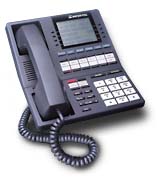| Message-ID: <20230109191454.GA1236518@telecomdigest.us>
Date: Mon, 9 Jan 2023 19:14:54 +0000
From: Bill Horne <malQRMassimilation@gmail.com>
Subject: Re: The predatory prison phone call industry is finally
about to be fixed
On Tue, Dec 27, 2022 at 11:46:35PM -0500, Monty Solomon wrote:
> The prison phone call industry has been broken for decades, with
> telecommunications companies, like Global Tel Link and Pay Tel
> Communications, charging unfair fees for phone and video calls from
> inmates. These fees vary by state, but they involve the phone provider
> offering kickbacks to prisons and local governments using the money
> they collect from the friends and families of incarcerated people. The
> result is a $1.4 billion industry built on fees that dispropor-
> tionately affect women and people of color.
The prison phone system is no more or less broken than the prison
system itself, which has, at its core, the task of keeping taxpayers
willing to shell out their money for bloated and poorly trained “Law
Enforcement” organizations which closely resemble the Barney Fife Fan
Club, and for political parties which are willing - nay, eager - to
extract exorbitent phone call prices from those least able to pay.
I have written extensively about the high costs of doing business in
prisons, where I used to work for a subsidiary of Global Tel
Link. It's obvious, however, that the costs aren’t high enough to
disuade those whom feel compelled to accept $3.00-per-minute collect
phone calls, and therefore to help our political leaders avoid the
reductions in recidivism which follow improved communications between
inmates and their relatives and sweathearts.
Make no mistake: there are more hidden agendas here than we could find
in a Defense Department budget:
1. Lower recidivim means less crime, and therefore (Heaven Forfend!)
lower insurance rates for all the might-have-been victims of crimes
that will never be committed.
2. Lower crime rates mean more low-income agitators able to gather
support for reforms by going door-to-door at night in what used to
be “Hight-Crime” areas, and in so doing to create ornery, impolite,
and motivated voters whom tend to ask rude and embarassing
questions of candidates for public office.
3. Lower crime rates mean fewer sinecure jobs for the brothers-in-law,
uncles, sons, and lovers of politicians at every level of the state
government: prison guards, police, courts, etc., ad nauseam.
If we want to reform prison phone systems, let's first reform the
society that made them necessary. That's probably an easier task.
Bill Horne
|
| Message-ID: <tpiits$1cn5$1@usenet.csail.mit.edu>
Date: 10 Jan 2023 02:35:40 -0000
From: "Garrett Wollman" <wollman@bimajority.org>
Subject: Re: T-Mobile USA - IPv6 available?
In article <20230109234624.GA1238186@telecomdigest.us>,
Bill Horne <malQRMassimilation@gmail.com> wrote:
> On Sun, Jan 08, 2023 at 04:42:26PM +0100, Marco Moock wrote:
>> Hello,
>>
>> what is the current situation of deploying IPv6 in T-Mobile's cellular
>> network in the US?
>
> According to the info at a page called "Case Study: T-Mobile US Goes
> IPv6-only Using 464XLAT" -
> https://www.internetsociety.org/resources/deploy360/2014/case-study-t-mobile-us-goes-ipv6-only-using-464xlat/
4G and 5G wireless technologies are inherently IPv6-based. What I
think the OP actually wanted to know was whether [what] T-Mobile gives
customers are globally routable IPv6 address, or a local IPb6 address
that is then squeezed through a “carrier grade NAT” to talk IPv4 with
the rest of the world. On Verizon, I have a globally routable IPv6
address (2600:1000::/28, assigned to Verizon), but my IPv4 address is
from the dedicated “CGNAT” private network, 100.0.0.0/8. On some
other carriers, however, both protocols use private networks.
(On a relatively recent Android phone, you can see your v4 and v6
addresses by opening the Settings app, selecting “About phone” and
then “Status.” On any device, you can test your actual IPv6
connectivity using a free web site like test-ipv6.com.)
-GAWollman
--
Garrett A. Wollman | “Act to avoid constraining the future; if you can,
wollman@bimajority.org| act to remove constraint from the future. This is
Opinions not shared by| a thing you can do, are able to do, to do together.”
my employers. | - Graydon Saunders, _A Succession of Bad Days_ (2015) |



